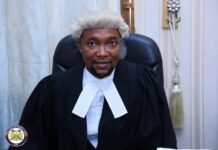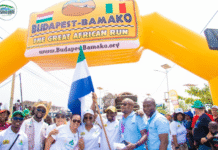By Amin Kef (Ranger)
A legal battle of immense significance has emerged in Sierra Leone as prominent pro-democracy lawyer and human rights activist, Augustine Sorie-Sengbe Marrah, takes legal action against the Chief Electoral Commissioner and the Electoral Commission for Sierra Leone (ECSL). The case revolves around Marrah’s denied request for access to disaggregated election results otherwise known as Results Reconciliation Forms (RRFs), for the Presidential, Parliamentary, and Local Council Elections held on June 24, 2023.
In a petition filed before the Supreme Court, Marrah contends that the ECSL’s refusal to grant him access to the disaggregated polling station results is a violation of his constitutionally guaranteed right to freedom of expression and access to information, as enshrined in Section 25 of the Constitution of Sierra Leone This move comes after the ECSL announced the final aggregated results for the Presidential and Parliamentary/Local Council elections on June 27, 2023, and July 1, 2023, respectively.
Marrah’s request for the RRFs was made under the Right to Access Information Act of 2013. Despite the Right to Access Information Commission’s instructions in a letter dated August 24, 2023, the ECSL failed to release the requested polling station results to the activist or make them publicly available.
In his legal papers, Marrah asserted that the ECSL lacks any legal basis or justification, neither under the Public Elections Act of 2022 nor the Constitution of Sierra Leone to restrict citizens’ access to the polling station results, which are fundamental to the electoral outcome announced by the ECSL.
Marrah’s call for access to disaggregated data echoes the sentiments expressed by numerous national and international bodies, including the Carter Centre, the EU Observer Mission for Sierra Leone, the US Embassy, and the National Elections Watch. They have all urged the ECSL to provide transparency by releasing the disaggregated data, allowing citizens to verify the election results.
Marrah is now seeking intervention from the highest court in Sierra Leone. He has requested that the Supreme Court orders the ECSL to provide him with the original copies of all 11,712 polling station results within seven days of the order.
This landmark legal battle is anticipated to shed light on a matter that has generated significant controversy within Sierra Leone’s political landscape. The demand for access to polling station results data is seen as vital in promoting transparency in the electoral processes and bolstering confidence in the country’s electoral management bodies. The Supreme Court’s ruling in this case is awaited with great anticipation, as it has the potential to resolve this contentious issue once and for all.




